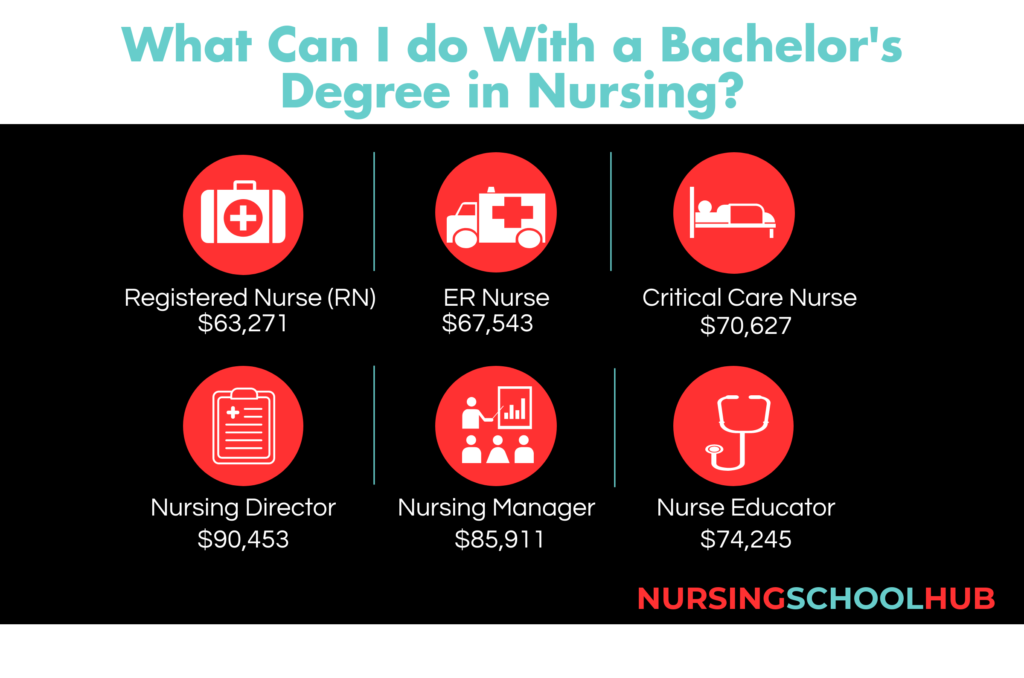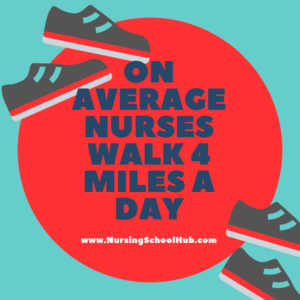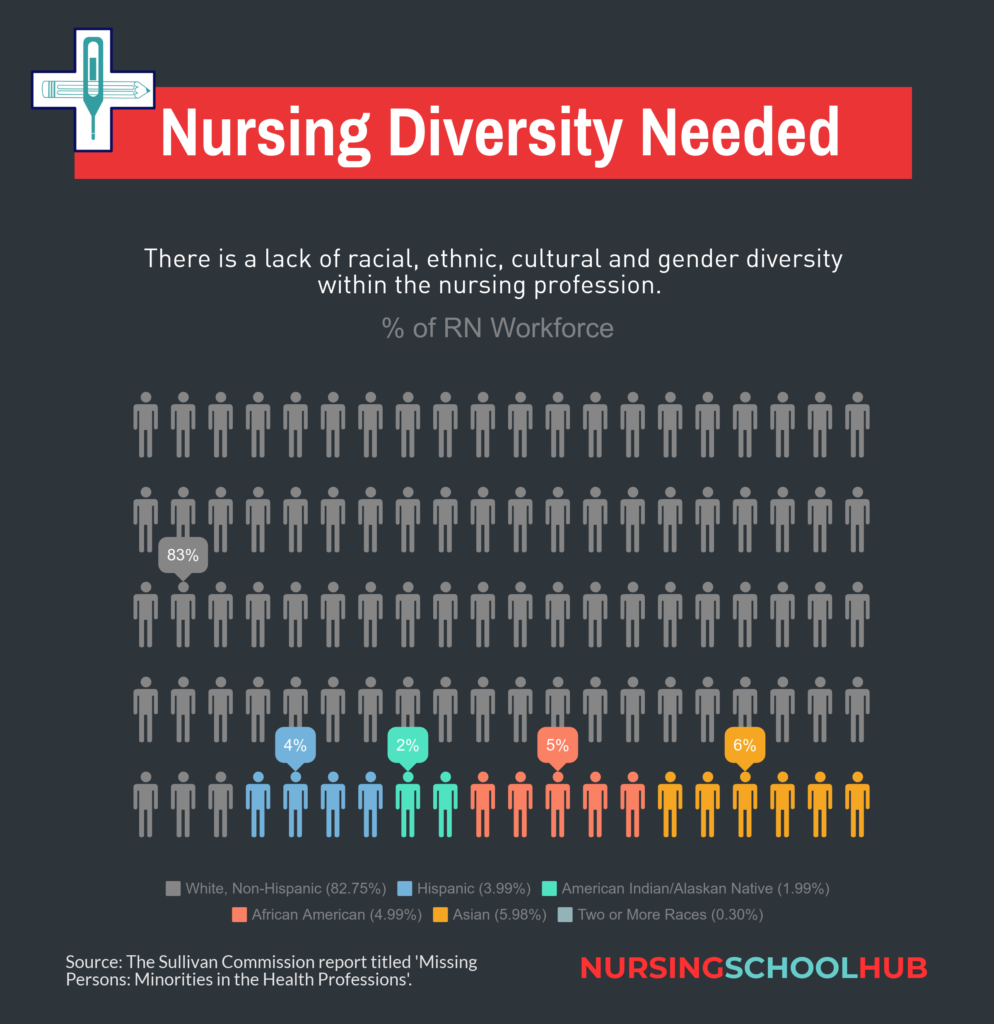Featured Articles from the Nursing School Hub include current topics in nursing. For example, the nursing shortage is a topic of discussion that comes up due to the aging population. As the Baby Boomer generation continues to get older and starts to retire, more jobs will become available for registered nurses. The shortage also relates to the growing population and the expectations that there will be more people seeking healthcare over time.
How Serious is the US Nursing Shortage?
According to the Bureau of Labor Statistics, jobs within nursing are expected to grow at a rate of 15 percent by 2026, which is much higher than the average growth for industries across the nation. The high rate of national growth in nursing means students and registered nurses will have more opportunities in the future for their careers.
Featured Programs
The nursing shortage causes depend on the location and area of the country. Southern states will find that the nursing shortage is a larger problem when compared to northern states due to the aging population in those areas. Since retirees tend to focus on areas with a warmer climate, the southern states are expected to have a greater shortage of nurses when compared to other areas of the country.

Although an aging population plays a role in the nursing shortage, the causes of the shortage are not limited to retirees. The National Institutes of Health point out that nurse burnout and an aging workforce are also contributing factors to the shortage.
Since the majority of nurses are also women, there is a challenge associated with childbearing and child care that further complicates the shortage concerns. Younger nurses are more likely to have children while they are working, so there may be scheduling conflicts or nurses may take time off of their career to have children.
What are Solutions to the US Nursing Shortage?
Finding nursing shortage solutions starts with understanding the causes of the shortage. Schools can help address the shortage by encouraging students to study nursing and consider a career in the field. Staffing shortages in healthcare offer students opportunities for their careers. By explaining the benefits of going into a career path that has a high demand for professionals, a school can help students consider their options within nursing.
Schools and local governments are also focusing on addressing staffing shortages in nursing by providing grants and scholarships to students who plan to study nursing. The grants and scholarships allow students to obtain their degrees without paying high costs for their education. Since the cost of college is a barrier to some students, particularly minority students, a solution to help address the underlying problem is providing students with initiatives via scholarships and grants to focus on nursing as their profession.
Focusing on the Public Image of Nursing
Large corporations are also striving to address the underlying problems with nursing shortages by focusing on the image of a nurse in the public. The image of a nurse has not changed for generations, and that limits the interests of certain individuals. By focusing on changing the image of a nurse in the public eye by showcasing more men in nursing or minorities in nursing, as well as the efforts of nurses in the healthcare industry, it is possible to encourage more individuals to consider a career in nursing.
Coming Up Short: The Need for Nurses
Finding the Right Nursing School For You
Forensic Nursing School Options
Nurse Rankings
Nursing Shortage: Fact or Fiction?
The Nursing Job Shortage: Where Are Nurses Needed Most?
What Can Nurses Do Besides Direct Care?
A common misconception when it comes to nursing is that your career is focused on direct care and you have limited alternative nursing careers. While the obvious route for your career path is through direct care, there are alternative jobs a nursing background provides for students who do not want to work directly with patients in a medical facility.
The most common career change for nurses who are no longer interested in direct care is teaching at the college level. A registered nurse with the right credentials as a doctor or with a master’s degree may have opportunities within the education system. You can teach students about nursing and take on an advisory role to younger professionals who may want to work in direct care. Teaching positions may have standards relating to your work experience and education, but you have options outside of the traditional bedside positions.
What are Some Alternative Nursing Jobs?
Alternative nursing jobs may also focus on research positions. Non-nursing jobs for nurses who still want to make a difference focus on research as it applies to health or related fields. By taking on a research position, nurses are able to use their skills to provide better solutions for challenges in their local area or across the nation. A researcher may focus on medical treatments for pharmaceutical companies or may work with private and independent companies for different research projects.
Unconventional nursing jobs focus on more creative fields and opportunities. When it comes to alternative nursing jobs, you can consider working as a nurse writer. A nurse writer may work for a news organization or a similar group, to sum up research papers and medical information about a specific area of health.
You use your knowledge and training as a nurse, as well as your experience in previous jobs, to explain and evaluate information in a way that reaches a wider audience. In some cases, you may answer direct questions about health-related topics. In other situations, you write up information based on research for medical journals and related sources. Academic nurse writers may also work on textbooks and training manuals.
Insurance companies and law firms may also hire a registered nurse to help with their malpractice cases and related complications. Since a nurse has inside knowledge of how the medical industry works, lawyers seek out nurses to provide details about their field that may be overlooked by professionals from other industries. You work with a lawyer to ensure accuracy when it comes to regulations that apply to medical facilities and related topics associated with the legal aspects of nursing and medical care.
10 Most Common Problems Treated in Emergency Rooms
30 Big Trends in the Field of Nursing
The Placebo Effect – A Basic Overview
Top 10 Most Common Diseases Found in Hospitals
10 Nurses in History
How Do Nurses Balance Work and Life?
When it comes to life as a nurse, a challenge you may face is the balance of your working hours and your personal life. The nursing lifestyle is a challenging lifestyle. You take on an emotional toll with each patient who comes into the medical facility with serious injuries, ailments, or challenges. As a nurse, you may see patients pass away while they are in your care. When you add the physical challenges of your life as a nurse, you will notice that there are times when you are exhausted from your work.
Nursing work-life balance plays an important role in your health and well-being. You cannot ignore the importance of balancing your career aspirations and responsibilities at work with your home life. Everyone needs time for family, friends, and loved ones. So, enjoy your hobbies and personal interests. That balance between your work and your life ensures that the emotional and physical toll of your career does not prevent you from engaging in things that are important for your well-being.
How Can you Balance Nursing and Life?

The first aspect of balancing your work and your life is focusing on self-care. You want to make sure you eat healthy, nutritious meals each day. Give yourself enough time to sleep at night, particularly after a double shift or a challenging shift. As a general rule, try to sleep at least seven hours per night.
Self-care means you take measures to keep your body healthy and to limit exhaustion. While it may not prevent the challenges of an emotional toll when you lose a patient, it does give you the ability to recognize your feelings and accept the reality of your job. It also allows you to provide your patients with the focused care they need while you are at work.
After you have a clear path for your self-care, you need to set priorities. Set clear goals for your career and your personal life. Prioritize by the most important goals you want to set. For example, if you want to move into more specialized areas of nursing, then you want to prioritize your education and work with your employer to set up shifts that support your plans. Although it is not always possible to get the shifts you want, setting priorities will help you plan out your goals and find realistic solutions to accomplish your goals.
The final consideration for a good work-life balance is learning to ask for help. As a nurse, you will face times when you have conflicts for your time. There will be challenges that impact your schedule and limit your ability to reach out to your patients. Do not be afraid to ask for help when a problem develops or a conflict arises. By asking for help, you are able to accomplish more and provide your patients with the compassionate care they need.
10 Collectible Barbie Dolls Inspired by Nursing
Relaxation Tips for Nurses
25 Best Nursing Podcasts
Books Every Nurse Should Read
Last-Minute Gift Ideas for Nurses and Nursing Students
Nutrition For Nurses
Blogs for Nursing Students
Tips for a Healthy Life
How Does Technology Impact Nursing?
Modern technology is changing the way nurses engage with patients and the workforce. The growth of technology in nursing means there are positions becoming available that focus on specific interactions with technology as a nurse. When you are looking into your career opportunities, you may consider nursing informatics jobs.
By evaluating what is nursing informatics, you are able to determine if the career path works for your goals. Nursing informatics programs focus on integrating information management and analytical science with the traditional wisdom found in nursing. A nursing informatics certification means you are capable of handling modern nursing technology. Nursing informatics salary starts at around $66,000 per year. Over time, you can expect your salary to increase to an average of $81,000 per year.
A key reason for the income level within nursing informatics is the combination of skills that apply to the situation. Nurse informatics focuses on combining information technology with nursing. That means a nurse has the technical skills to handle a variety of different challenges related to technology.
The benefits of information technology in nursing focuses on greater communication and fewer errors. Nurses are able to communicate quickly with doctors and others within the medical facility. It saves time, which means a nurse or doctor can focus more attention and time on the patient. Technology also ensures that the facility is able to share information about a patient’s health at a rapid pace. Therefore, it is no longer necessary to run for a physical chart when a doctor can pull up the data on a tablet or computer. It allows nurses to devote more time to the patient in an emergency situation rather than fumbling with traditional paperwork.
What are Some Disadvantages of Technology?
The disadvantages of technology in nursing relate to limitations within the technological device. Software programs may not offer enough information to properly chart data for a patient. That means nurses may become frustrated with the limitations to communication if an application or program does not have adequate options for data entry.
Technology also comes with potential drawbacks as it relates to patient privacy and data management. A key reason for nurse informatics to focus on information technology skills is to protect patient information and privacy from outside parties. There is a greater risk of losing data to hackers or other sources when a medical facility focuses on advanced technology.
Technology is a growing area of nursing. Facilities are becoming increasingly dependent on the use of different technological tools to evaluate the needs of patients or to identify risk factors that apply to a specific individual. By incorporating technology, a facility needs to ensure they have nurses who are able to handle the difficulties that may arise and can protect patient privacy from outside sources. Nurses will also need to learn to use programs effectively for proper communication, but it does offer options to help in emergency situations.
What are Nursing Diversity and Cultural Competence in Nursing?
When it comes to diversity in healthcare, it is important to understand the different factors that may impact nurses and their career goals. By evaluating nursing diversity, it is easier to evaluate the potential challenges a nurse may face in his or her career. Cultural competence in nursing means understanding the differences in culture that may impact the work environment and providing the right support to help nurses focus on providing competent care to patients.

Why Should we Focus on Minorities in Nursing?
A key reason to focus on minorities in nursing is the cultural and demographic shifts impacting medical care. Census data suggests that demographics among young populations are changing rapidly, with 50.4% of children under one year old in 2011 being born in a minority family.
Cultural competence in nursing improves with nurses from diverse backgrounds. Since the nurses are more sensitive to culturally complex factors that may impact a patient’s care, they are able to address challenges that may arise in the work environment.
According to the U.S. Department of Labor, only 9.9% of nurses are African-American, 3.9% of nurses are Hispanic, and 7% of nurses are Asian. The percentage of nurses from minority backgrounds is underrepresented when compared to the demographics of the country. When medical facilities do not account for demographic factors in hiring processes, they take the risk of isolating patients and making patients uncomfortable with the medical staff.
Men in Nursing
While minorities in nursing play an important role in cultural competence, it is also important to consider the men in nursing. According to Johns Hopkins University, only about 6% of nurses in the United States are men. The perception that male nurses are an outlier plays a role in the way men view the profession and may contribute to the reason men avoid the career. When men do decide to work in nursing, they find that they have the same opportunities to take on advanced roles within their field and provide care to patients with compassion and patience.
A medical facility may benefit from having male nurses on staff by addressing concerns when patients are uncomfortable with female nurses. It also provides a different perspective within the field of nursing that may assist with patient care during complex situations. Men bring a different perspective to a traditionally female-dominated field. That allows a facility or hospital to provide patients with the sensitive care they need while healing or recovering from an injury or ailment.
Nursing and the LGBTQ Community
Diversity in healthcare is not limited to a nurse’s physical traits. Concerns about healthcare as it pertains to the LGBT community also play a role in nursing careers. The number of nurses who decide to inform an employer about their sexual orientation or gender identity differs significantly between medical facilities. Nurses may not feel comfortable discussing their identity in a fast-paced environment; however, a facility benefits from hiring LGBT nurses due to their understanding of the unique challenges associated with the community.
A medical facility strives to recognize the concerns that may arise when a patient seeks assistance. Focusing on diversity in nursing allows a facility to provide the type of care and treatment that patients need. It also increases the competency of the staff when it relates to cultural challenges or differences in background. Minority nurses are sensitive to the cultural aspects of a patient’s health and provide care based on the concerns and interests of the patient.